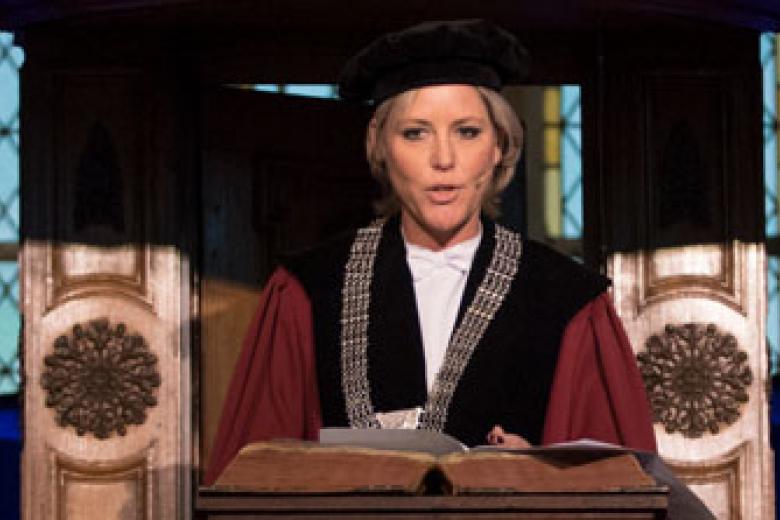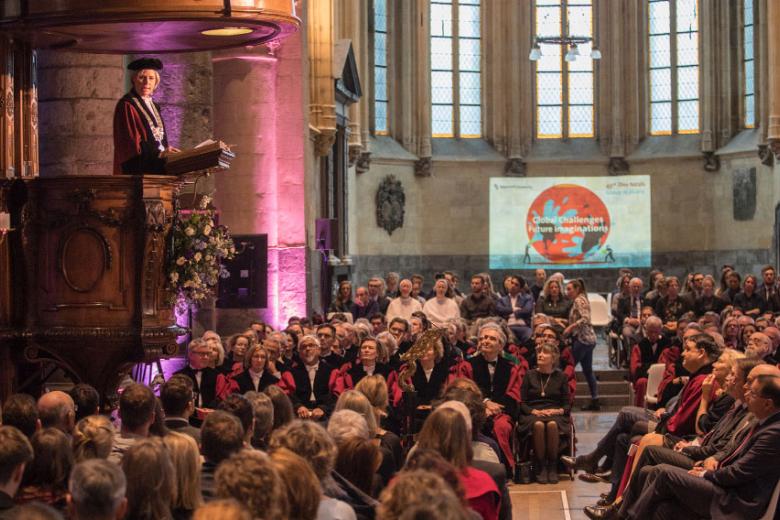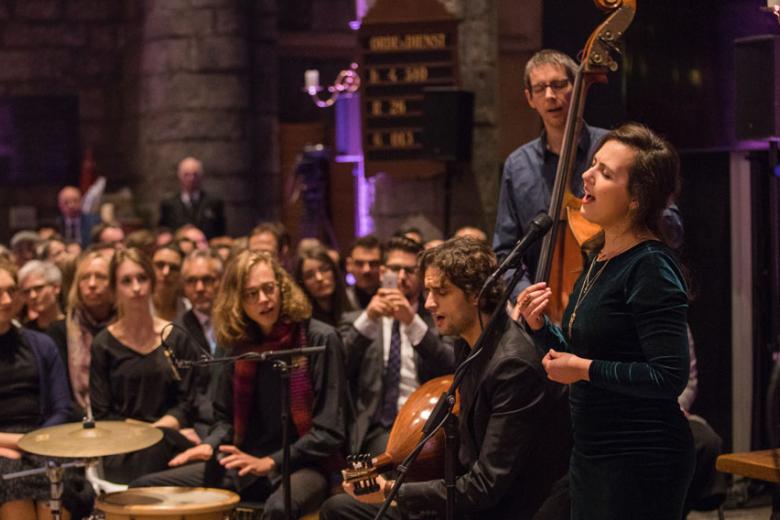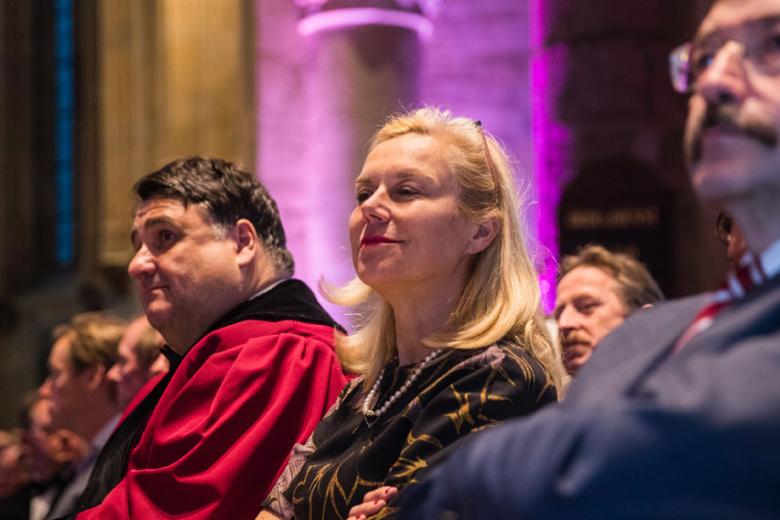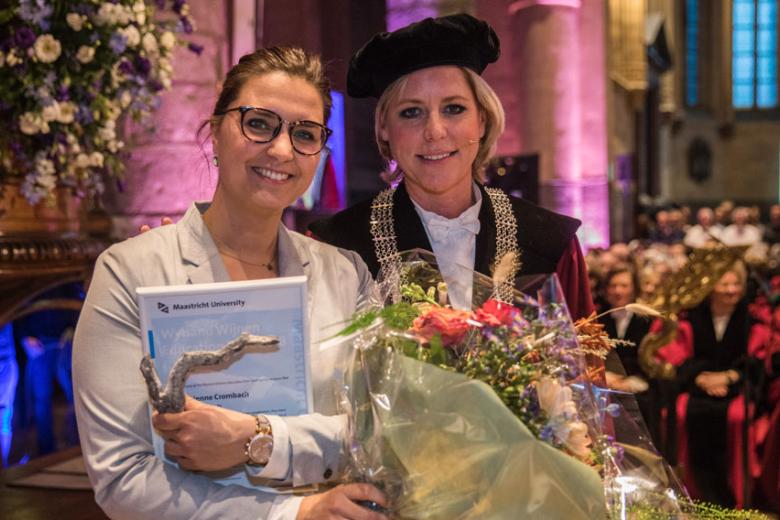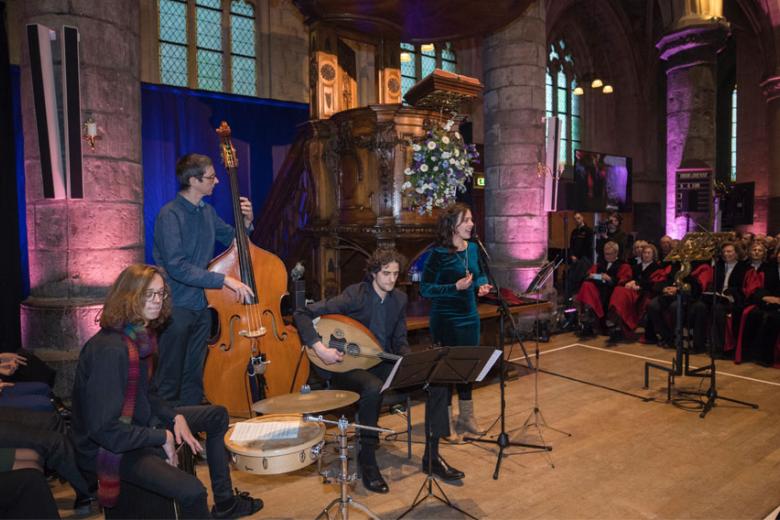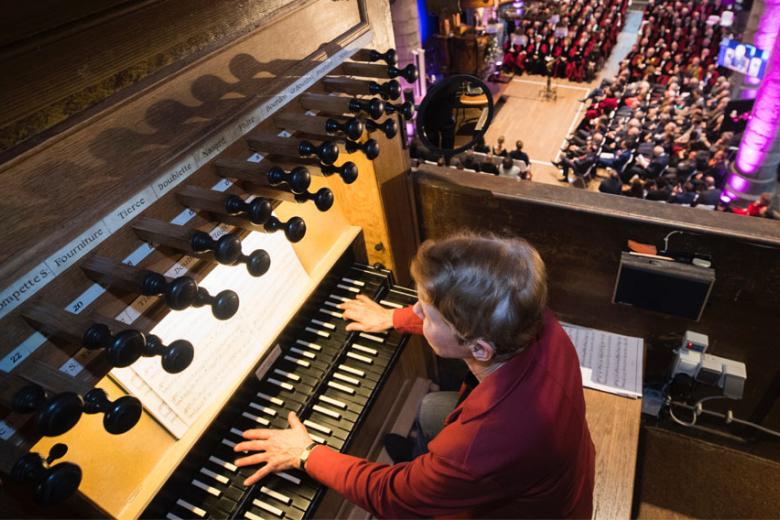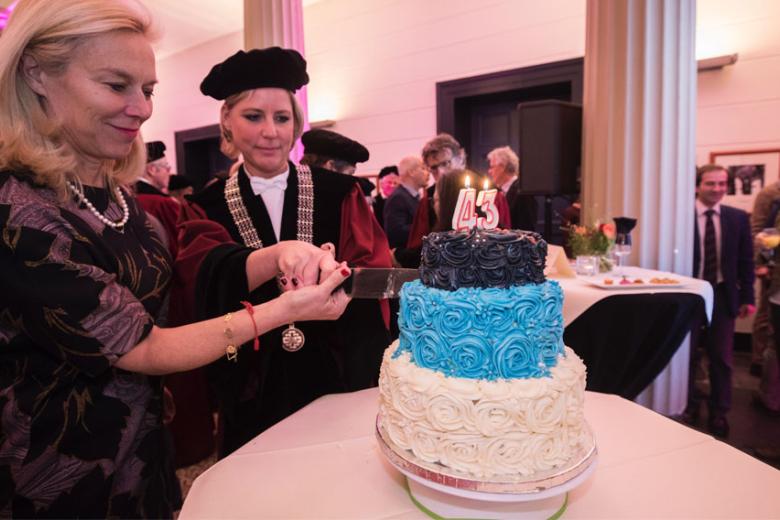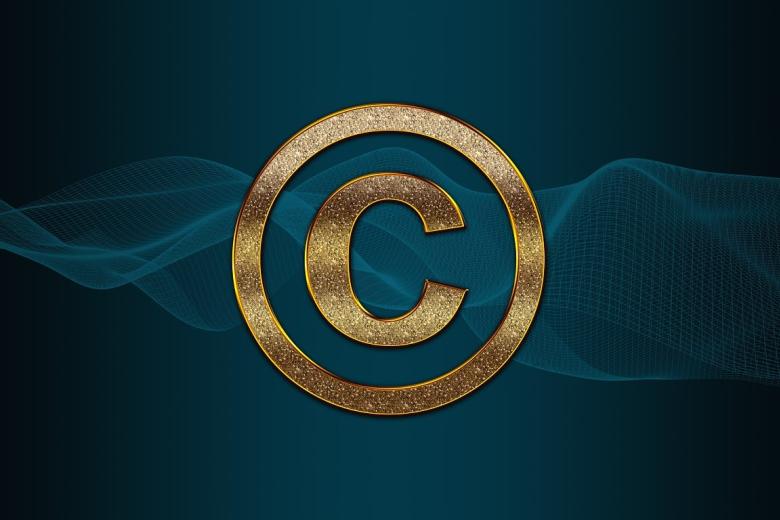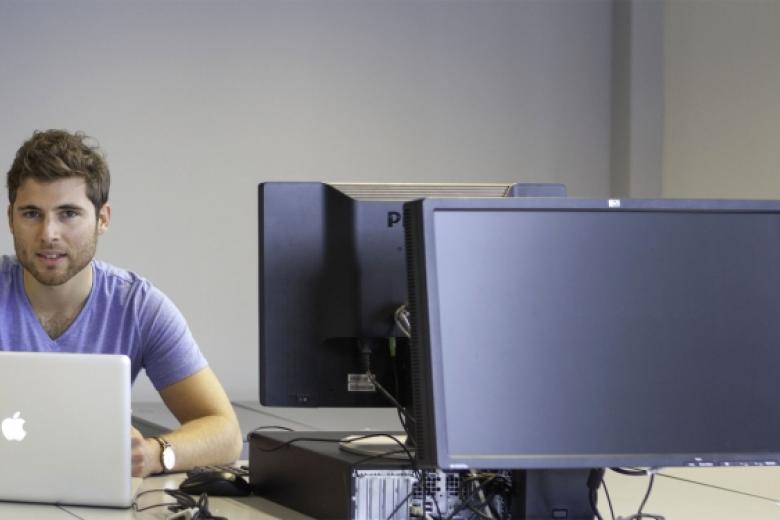Impressions from the Dies Natalis
Awards
Wynand Wijnen Education Prize
The Wynand Wijnen Education Prize, for staff who have made an exceptional contribution to education, was awarded to Fabienne Crombach. She coordinates PREMIUM, UM’s honours programme for master’s students.
Dissertation Prize
The 2018 Dissertation Prize, this year awarded for the best doctoral dissertation from the inner city faculties, went to Hortense Jongen from the Faculty of Arts and Social Sciences. Her thesis is entitled: ‘Combating corruption the soft way: The authority of peer reviews in the global fight against graft.’
Master Student Prize
The Master Student Prize 2018 was awarded to nine students, coming from all six faculties, for their exceptional master theses.
Also have a look at the student video report of the Dies Natalis
Dies lecture - Sigrid Kaag
Sigrid Kaag, the Dutch Minister for Foreign Trade and Development Cooperation, held the Dies lecture entitled ‘Our commitment, their future: the SDGs and young people’.
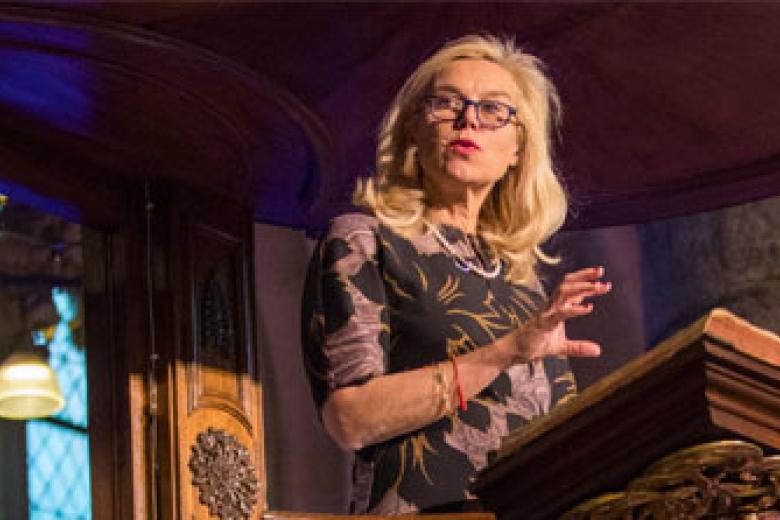
Michael Ignatieff
Professor Michael Ignatieff, rector and president of Central European University, received an honorary doctorate. Watch a brief profile and the bestowal of the degree.
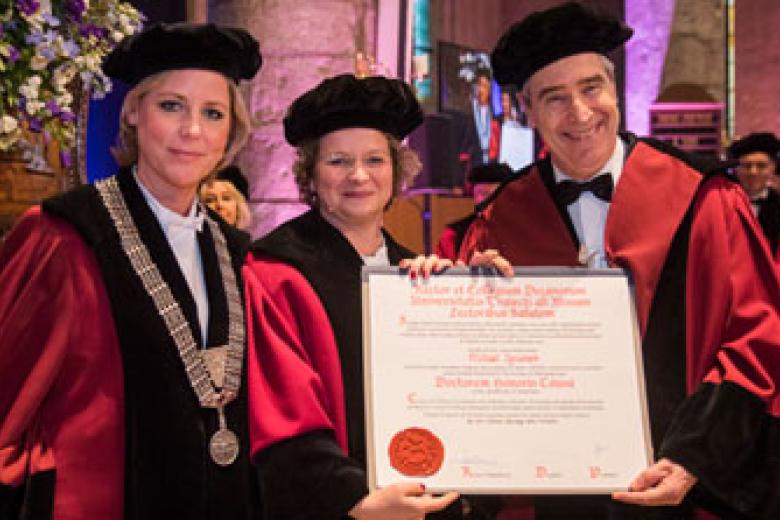
Amitav Ghosh
Dr. Amitav Ghosh, award winning novelist, received an honorary doctorate. Watch his profile and the bestowal.
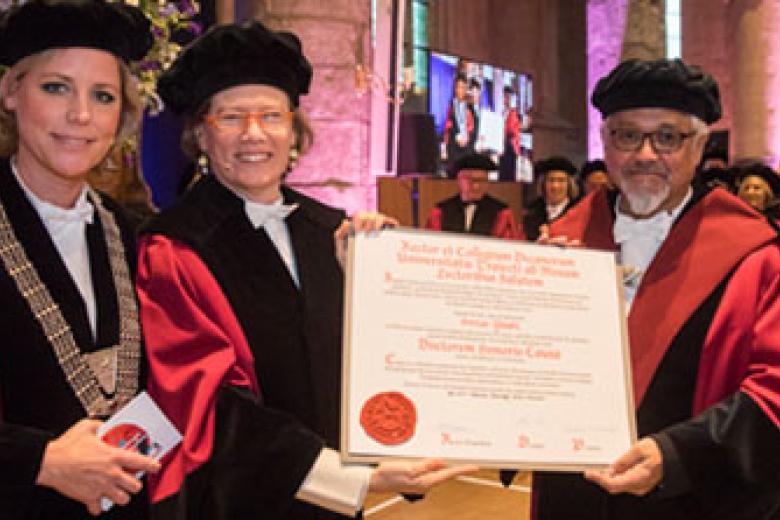
Martin Paul
UM's president prof. dr. Martin Paul spoke a few words on UM's partnership with the University of York.
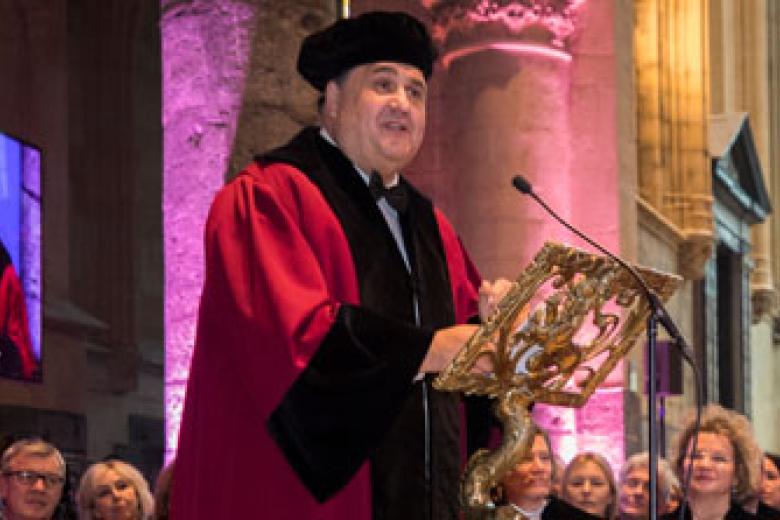

Welcome from the rector
Rector Rianne Letschert welcomes the audience and introduces this year's theme in her opening speech.
